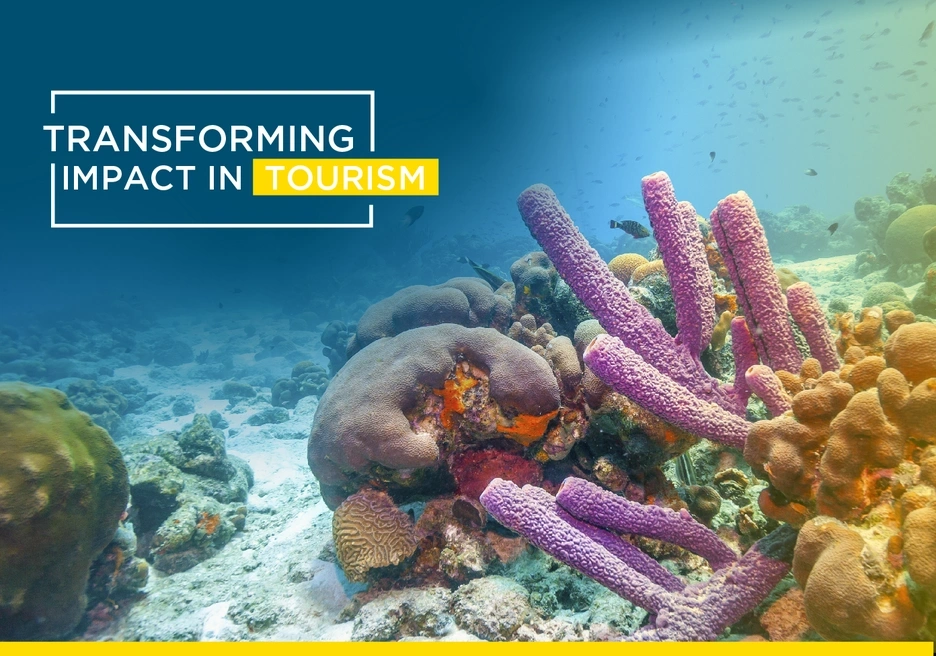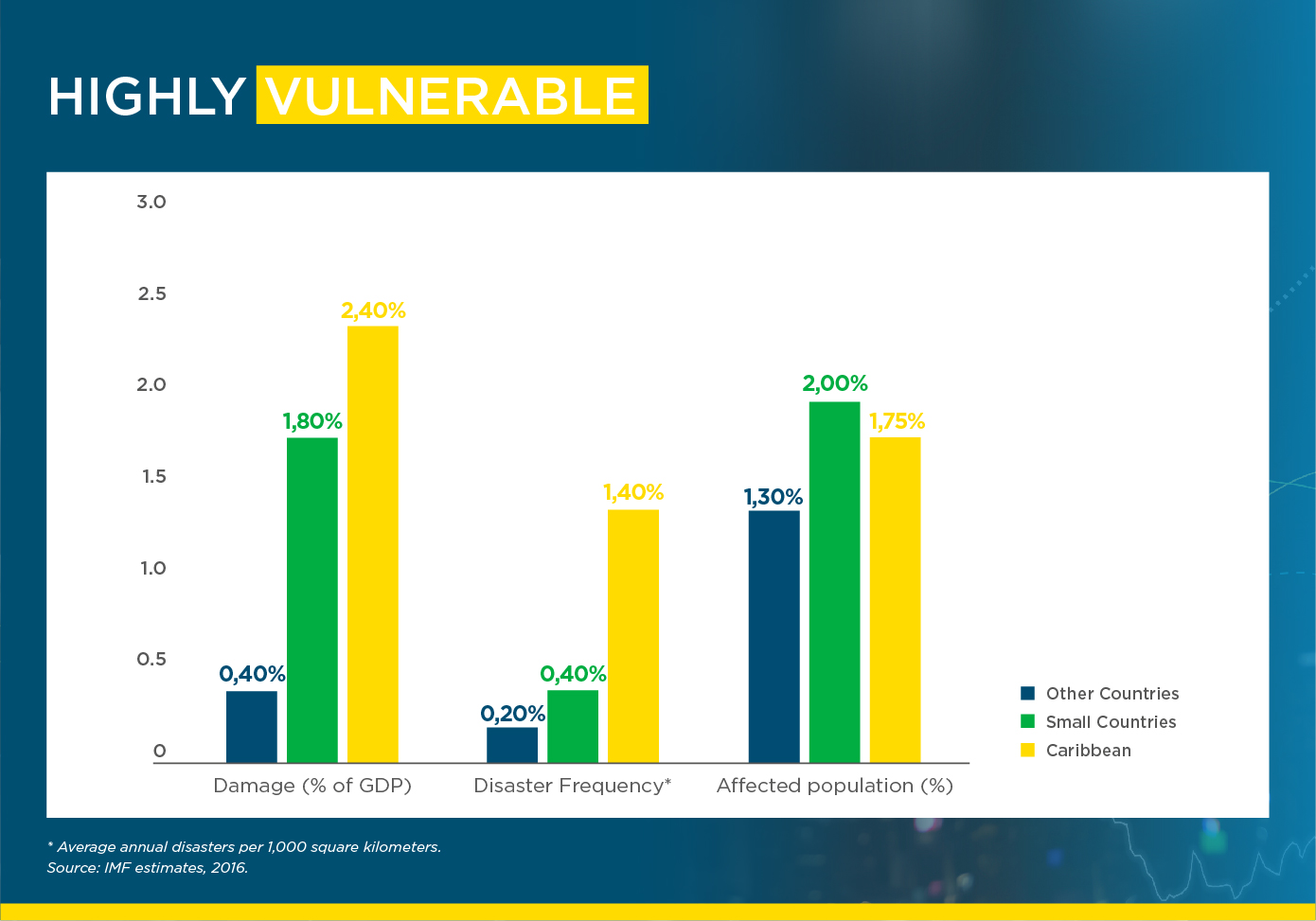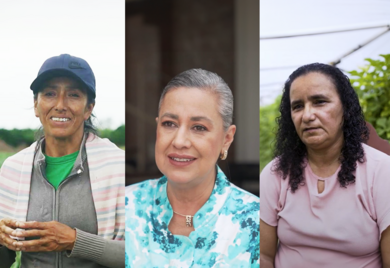Three Ways In Which the Tourism Industry Can Help Build Climate Resilience in the Caribbean

After several months of being at a virtual standstill due to the pandemic —longer than was initially predicted — Caribbean tourism desperately needs to get back to business.
The sudden freeze in travel has significantly impacted the region’s economy, which is expected to contract by at least 6.2% in 2020 according to the IMF. As the Caribbean tourism sector begins to recover, it should take into account that the climate change threat still looms on the horizon. With a high dependency on tourism (the sector accounts for 13.9% of Caribbean gross domestic product), the Caribbean is at most risk of enduring financial hardship if extreme weather events disrupt the sector’s recovery.
As such, tourism stakeholders can approach this crisis as an opportunity to reset and embrace initiatives to increase the region’s resiliency against climate change.
You may also like:
- Extreme Outlier: The Pandemic’s Unprecedented Shock to Tourism in Latin America and the Caribbean
- Addressing Climate Risk: Five Steps to Get Started
- Sahara Dust Storms in the Caribbean, a Hazard For Both Humans and Coral Reefs
The Caribbean is particularly susceptible to climate change. Experts state that global warming will result in stronger storms and project a sea level rise between one to four feet (30 centimeters to 1.2 meters) by 2100. The reefs, coasts, and marine life on which all Caribbean countries depend on are under threat from coral bleaching, ocean acidification, rising sea temperature, and storms.
As seen during the pandemic response, a joint effort between governments and private tourism sector is key to make the tourism in the Caribbean more resilient against climate change. And resiliency goes beyond grey infrastructure. While a hotel may be built to withstand stronger hurricanes, it also needs to ensure that the rest of its ecosystem — namely environment, local communities, and value chains — is strong enough to support the impacts of climate change. According to a recent International Monetary Fund study, natural disasters have particularly high human and economic costs in the region.

The Caribbean tourism sector can help build up climate change resilience through the following three ways:
- Focus on the environment: Hoteliers can take action to increase the protection and resilience of valuable natural resources. Coral reefs and mangroves not only attract tourism and preserve marine biodiversity but also protect against waves and storm surges, mitigate floods, and reduce coastal erosion. The lodging sector can take the lead in working with local communities to develop short-term solutions (i.e., coral reconstruction, mangrove restoration, beach clean-up) while promoting long-term protection against extreme weather. For example, IDB Lab recently launched an initiative with the government of Barbados to preserve reefs through a public-private partnership involving hotels.
- Work with local communities and the value chain: As travelers seek more authentic experiences, hotels have the unique opportunity to empower local communities as part of a new, resilient tourism. Hotels can help visitors reduce their carbon footprint by sourcing sustainable local food and beverage and decrease the use of single-use plastics. The lodging sector can also generate awareness on sustainability by partnering with small-scale farmers to provide tours and learning experiences for guests. By supporting sustainable fishing, aquaculture and climate smart local farming, hotels can indirectly contribute to the preservation of natural resources such as soil, water and forests, the conservation of biodiversity, and the reduction of greenhouse gas emissions.
- Train and support local communities: for example, West Resort, a sustainable tourism project financed by IDB Invest in Bocas del Toro, Panama, is expected to develop a sustainable local fishing program that will train fishermen, craftsmen and farmers from the surrounding region – one that is over 50% indigenous – who could become suppliers to the mixed-use project. Additionally, during a natural disaster, hotels can support local disaster relief programs by serving both as shelters and logistics centers for employees, residents, and response teams. As seen in the response to COVID-19, hotels can become a vital hub with a far-reaching influence.
The tourism industry is under significant distress and is pushing to safely re-open so that it may embark in a gradual recovery process from the pandemic. Though liquidity remains the top priority, confronting the imminent threat that climate change poses is also undeniably necessary to guarantee the long-term sustainability of the sector.
With the hurricane season looming around the corner, hotels have the added task of not only inducing demand but also re-building the sector so that it can prosper in the uncertain circumstances that lie ahead. Innovation often arises in periods of adversity – this might be the time for a new resilient tourism to emerge for the Caribbean.■
LEARN HOW IDB INVEST CAN OFFER YOU SOLUTIONS HERE.
SUBSCRIBE AND RECEIVE RELATED CONTENT |
| [mc4wp_form] |
¿TE GUSTA LO QUE ACABAS DE LEER?
Suscríbase a nuestra newsletter para mantenerse informado sobre las últimas noticias de BID Invest, publicaciones de blog, próximos eventos y para obtener más información sobre áreas específicas de interés.
Suscribirse



